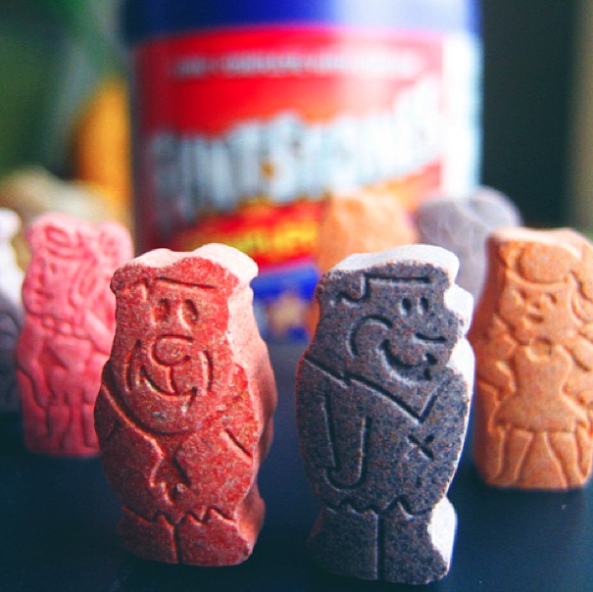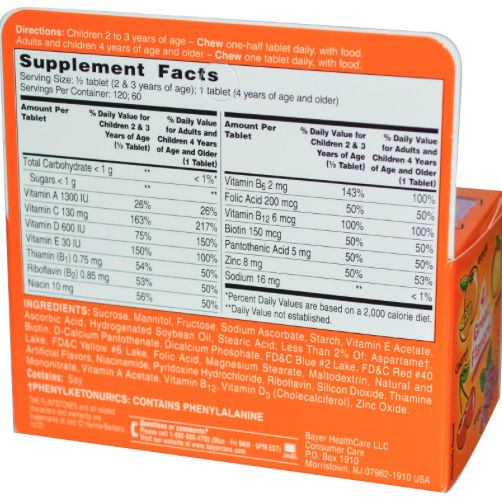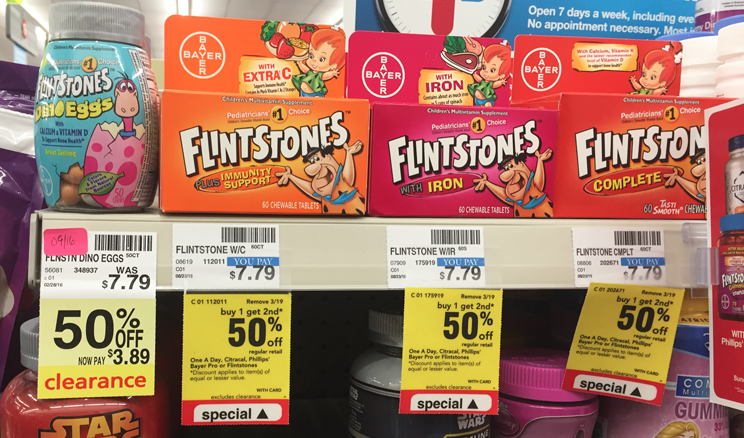As a child, my daily routine included taking a vitamin every day before breakfast. Flintstones Complete Chewable Multivitamins were the vitamins on hand in our kitchen, and even though I sort of hated them (especially the orange ones) I was forced to eat them every morning by my parents and older brother. A number of parents, like mine, believe that Flintstones are the best vitamins available for kids. But are they really that good for you? And if you’re a grown adult should you still be eating them?
Sure, Flintstones vitamins are fun, colorful, and come in a variety of flavors that make them more enjoyable to consume than giant bland pills, but a deeper look into their ingredients list might make you rethink taking them. The second ingredient listed in Flintstones Complete Chewables is sorbitol, a sweetening agent used in place of sugar. Sorbitol is typically used as a laxative agent, and therefore can cause nausea, stomach cramps, and severe diarrhea if consumed in too high a quantity.

Photo courtesy of @soreyfitness on Instagram
In 1999, The Center for Science in the Public Interest petitioned the FDA to require a label on products containing sorbitol, warning consumers against the problems it may cause. Sorbitol’s negative symptoms can take effect when anywhere from 10 to 50 grams are consumed. Children can be affected by even smaller amounts. Yet the FDA concluded that the label was not needed.
In addition to Sorbitol, Flintstones vitamins with iron contain fructose, another form of sugar. But unlike sugar, which is broken down by all the cells in our body for energy, fructose is broken down only by liver cells. This builds up triglycerides, a type of fat that damages liver function. According to Harvard Health Publications, fructose is also linked to obesity and diabetes, and should only be consumed in small amounts.

Photo courtesy of iherb.com
Another big problem with Flintstones vitamins is the use of artificial colors and flavors. Yes, pretty colors make them more appealing to kids, but they can actually be very bad for them. In the UK, artificial colorings are actually banned, and in the EU foods with artificial colorings must have a warning label saying that they “may have an adverse effect on activity and attention in children.” These effects may lead to ADHD in some children.
The final, and much debated controversy surrounding the cartoon vitamins is whether or not children even need to take vitamins in the first place. Many health experts vouch that the foods we consume on a daily basis already have added vitamins in them—including cereals, bread, eggs, and yogurt. Dr. Kadakkal Radhakrishnan, a pediatric gastroenterologist and hepatologist at the Cleveland Clinic, says that if you’re following a balanced diet vitamins aren’t really needed, though they can be beneficial to those with special dietary needs, such as vegetarians.

Photo courtesy of thekrazycouponlady.com
While Flintstones vitamins may contain a variety of vitamins and minerals beneficial to children, they also contain a lot of chemicals and additives that can cause harm to their health. If you’re going to take vitamins, it’s best to stick to ones that contain only natural ingredients, which might sadly mean they’re not shaped like Fred and Wilma.


